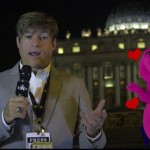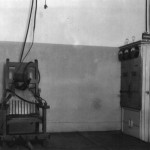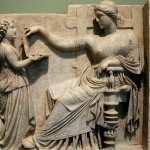
Since the Synod is occupying everyone’s minds, including my own, I thought I’d change things up a bit with an interview about the Hong Kong Occupy Movement. I mean, no matter if the Synod will unleash the apocalypse, the world will still go on (at least for a little bit).
Now, you might be aware of the Hong Kong Protests from brief news-reports, but how much do you really know about what is going on? Did you know religion is front and center in these events in lots of interesting ways? For example, (Catholic) Cardinal Zen has played a prominent, if complicated, role. [Thanks to him I get to riff off an old cult classic book’s title, which I haven’t read.]
To fill in the gaps for you I am taking this opportunity to pick the brains of a great up-and-coming religion scholar who is an expert on East Asia and religion.
Justin Tse is an SSHRC Postdoctoral Fellow at the Jackson School of International Studies, University of Washington. He received his PhD in Geography at the University of British Columbia at Vancouver. He drinks at least four cups of coffee a day and writes about theology and geography at Religion. Ethnicity. Wired.
Cosmos: Have the protesters used religion to achieve their aims?
Justin Tse: Yes, but it’s important to clarify that this does not mean that the protesters are being supported by any religious organization. There have been journalistic accounts of how many of the major leaders of the protests are Christian. There have also been Catholic and ecumenical Protestant Eucharist services among the protesters, makeshift shrines to Chinese popular hero-deity Guan Yu, and a politically charged Taoist rite alleging government illegitimacy celebrated during the Chung Yeung Festival on October 2. For the Roman Catholic Church, retired bishop Joseph Cardinal Zen taught during the democracy teach-ins and personally accompanied the students to Civic Square on September 28. He has also issued multiple calls for the students to retreat and regroup, which have seldom been heeded. This sort of cautious support highlights that it’s important to distinguish between protesters who have both implicitly and explicitly deployed theology for their aims and the official religious bodies which have stayed on the sidelines.
You can read the rest of this interview here at Ethika Politika.















